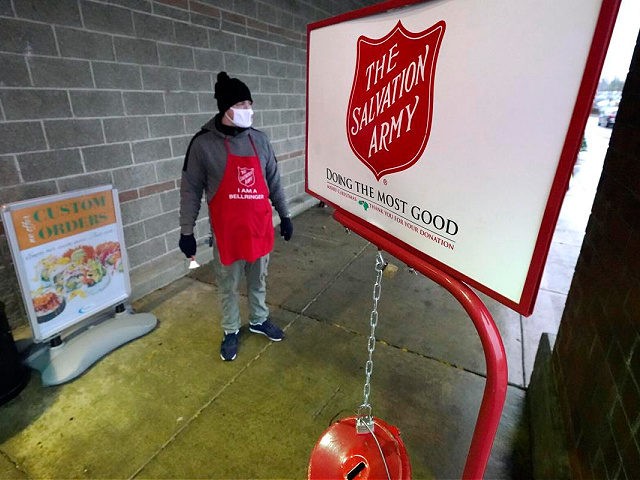The Salvation Army’s International Social Justice Commission has withdrawn a controversial guidance on race, which urged donors to offer a “sincere apology” and ask for forgiveness for white supremacy and white-dominated culture after its contents went viral. However, despite originally issuing the guidance, which urged donors to “lament, repent and apologize for biases or racist ideologies held and actions committed,” the charitable organization denies the word-for-word reports on the contents of the guide, describing them as “simply false.”
In a November 25 update titled, “The Salvation Army’s Response to False Claims on the Topic of Racism,” The Salvation Army reiterated that its primary goal is to “preach the gospel of Jesus Christ and meet human needs in His name without discrimination.”
“The beliefs that motivate our service are based solely on the Bible, and that will never change,” the organization said, accusing “some individuals and groups” of attempting to “mislabel our organization to serve their own agendas.”
“They have claimed that we believe our donors should apologize for their skin color, that The Salvation Army believes America is an inherently racist society, and that we have abandoned our Christian faith for one ideology or another,” it wrote.
“Those claims are simply false, and they distort the very goal of our work,” it claimed, emphasizing its belief that racism is “fundamentally incompatible with Christianity, and that we are called by God to work toward a world where all people are loved, accepted, and valued”: Our positional statement on racism makes this clear. These beliefs and goals are critically important because we know that racism exists, and we are determined to do everything the Bible asks of us to overcome it.”
The organization explained that it publishes internal study guides on “various complex topics to help foster positive conversations and grace-filled reflection among Salvationists,” which is where the controversial guide “Let’s Talk About Racism” comes into the picture.
The organization said the guidance was “issued as a voluntary resource” and continued to defend it, casting blame on “some” for ignoring “accurate information” it has provided.
“At the same time, International Headquarters realized that certain aspects of the guide may need to be clarified. Consequently, for both reasons, the International Social Justice Commission has now withdrawn the guide for appropriate review,” The Salvation Army announced, claiming that it is not telling people how to think and reemphasizing that it is simply committed to the model set by Jesus.
However, the most controversial aspects of the guidance, which cited an “urgent need for Christians to evaluate racist attitudes and practices in light of our faith,” were not addressed in The Salvation Army’s pointed statement.
The guidance, developed by the organization’s International Social Justice Commission, listed goals in the guidance, urging donors to “understand and acknowledge the definitions of race and racism and how the social construct of race has affected society” and, ultimately, “lament, repent and apologize for biases or racist ideologies held and actions committed.”
The guide also instructed readers to “stop denying the existence of individual and systemic/institutional racism,” “stop denying that White privilege exists,” and “stop trying to be ‘colorblind'”:
While this might sound helpful, it actually ignores the God-given differences we all possess, as well as the beautiful cultures of our Black and Brown brothers and sisters. Instead of trying to be colorblind, try seeing the beauty in our differences, and welcome them into your homes churches and workplaces. Being colorblind also ignores the discrimination our Black and Brown brothers and sisters face and does not allow us to address racism properly.
It also asserted that individuals can perpetuate racism in “conscious and unconscious ways” and called for “repentance” and a “heartfelt apology,” as such is necessary, the guide suggested, to “move towards racial reconciliation”:
We recognize that it is a profound challenge to sit on the hot seat and listen with an open heart to the hurt and anger of the wounded. Yet, we are all hardwired to desire justice and fairness, so the need to receive a sincere apology is necessary. We are also imperfect human beings and prone to error and defensiveness, so the challenge of offering a heartfelt apology permeates almost every relationship.
Even if the individual feels as though they never acted in a racist manner, the guide suggested they “spend time repenting on behalf of the Church and asking for God to open hearts and minds to the issue of racism.”
“Perhaps God spoke to you during your time of lament, and you have an idea of what you need to repent and apologize for,” the now-pulled guide stated. “Please take time to write out or think about how you can repent and apologize.”

COMMENTS
Please let us know if you're having issues with commenting.